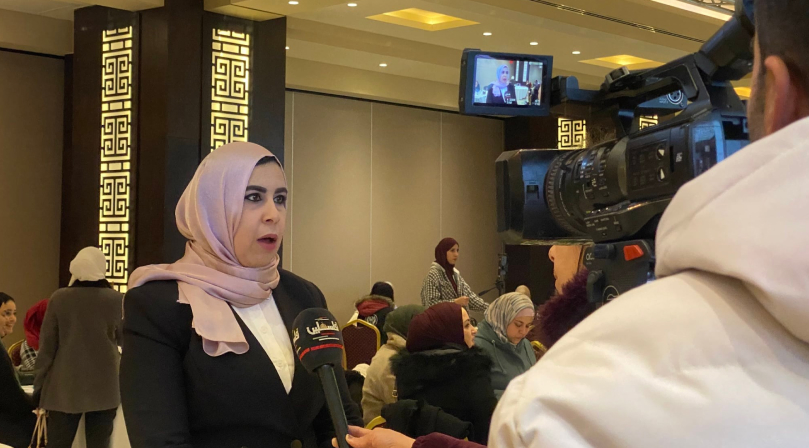Impact by Regions, Countries & Territories
UNDP’s Global Programme supports crisis-affected contexts across all regions to strengthen the rule of law and human rights. In this section, we present five regional overviews, detailing our priorities and approach depending on the context, as well as feature select country and territory results from 2021.
Five contexts from the list (Central African Republic, Democratic Republic of the Congo, Haiti, Mali and Yemen) illustrate the achievements of the Global Focal Point for the Rule of Law (GFP). In peacekeeping missions and transition settings, UNDP’s Global Programme works through the GFP to deliver integrated assistance with our UN partners.
GFP Global Focal Point Highlights
Political
Engagement
The rule of law is essential for sustainable peace and resilient economies, as well as for the prevention or recurrence of conflict. To prevent or address injustice, inequalities or democratic deficits, UNDP works with multiple stakeholders to operate in a way that is consistent with the rule of law and creates opportunities for all individuals to exercise their rights and access justice.
Institution
Building
The importance of strong institutions is more evident than ever as countries and communities respond to disruption, whether because of public health restrictions, climate change or political upheaval. Limitations on public gatherings and travel have revealed the need for institutions that are resilient to disruption.
Community
Security
2021 was a pivotal year that saw various developments affecting peace and security around the world. Civic space continued to shrink and the social contract between states and citizens was increasingly challenged, particularly during and after the response to the COVID-19 pandemic. Facing distressing consequences of climate change, states and communities are forced to manage more cross-border conflicts, triggered by the displacement of people seeking increasingly scarce resources.
Human Rights
Systems
The scope of human rights challenges is widening, from eroded public trust and shrinking civic space to ongoing inequality and human rights impacts in the socio-economic repercussions of the COVID-19 pandemic, and emerging risks in the digital sphere. National human rights institutions (NHRIs), along with other human rights defenders, are facing rising and sophisticated forms of reprisals for carrying out their work.
Access to
Justice
Sustainable Development Goal 16 (Peace, Justice and Strong Institutions) of the 2030 Agenda highlights the importance of access to justice for all for the development of peaceful and inclusive societies. Meaningful access to justice can only be achieved when people know their rights, have the opportunities, agency and capacities to claim them, and have access to independent, inclusive and people-centred justice systems that will respond in a timely, fair and effective manner.
Transitional
Justice
Without justice, there can be no lasting peace. In post-conflict, crisis-affected and fragile contexts, truth-seeking initiatives and reconciliation efforts are essential to bring peace to affected communities. The COVID-19 pandemic has slowed down transitional processes as states prioritized their response to the health crisis and measures to support the economy.
Gender
Justice
In 2021, the continued erosion of democracy and the spread of authoritarian trends in politics in many parts of the world contributed to a backlash against women’s rights. The COVID-19 crisis has reversed some of the hard-won gender parity gains by exacerbating pre-existing inequalities and power imbalances. It has also caused a dramatic increase in sexual and gender-based violence (SGBV). All these challenges have been particularly acute in conflict, fragile and crisis-affected settings.
Innovation
New ideas and new strategies are critical to building sustainable and effective development approaches that really meet people’s needs. Technologies and globalization raise new human rights concerns and threaten the rule of law. Responses to the COVID-19 pandemic continue to limit people’s access to basic services. UNDP connected expertise across the globe to learn and adapt. Creating a culture of curiosity and experimentation, these efforts ensured that local needs and expertise were combined with emerging models to bring strategic thinking to people-centred development goals.

State of Palestine
In the State of Palestine, the Rule of Law and Access to Justice Survey conducted by the Palestinian Central Bureau of Statistics confirmed a trend of the increasing trust in the justice chain. The following data is among the most salient findings of the biannual perception survey (all compared with 2018):
- 13 percent increase in the number of Palestinians who place their trust in the judiciary.
- 10 percent increase in the number of Palestinians who trust Palestinian Civil Police.
- 20 percent more people said they were satisfied with the performance of judges.
- 45 percent (12 percent more than in 2018) of Palestinians answered positively when asked whether they believe they would receive a fair trial if charged with a criminal offense.
Such results build on strong synergies within the development community and with national partners that allowed, inter alia, for the specialization of judicial services, which underpinned the swift rollout of the 2016 Juvenile Protection Law and the currently underway establishment of a court in Nablus that will consider cases of violence against women. Moving forward, such work will be further pursued through cross-cutting initiatives ranging from court monitoring and enforcement to the digitalization of court proceedings.

Ramallah, State of PalestinePhoto: Sawasya
